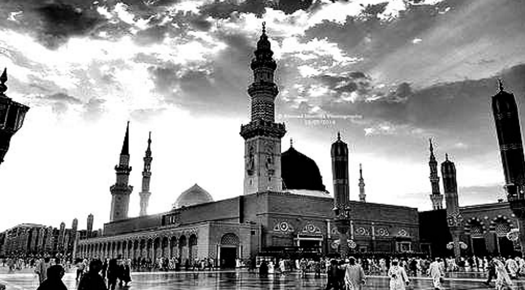
Muslim leaders from across the world have urged Sunnis and Shias to unite against Islamist terror after militants targeted one of Islam’s holiest sites last month. Saudi Arabia reassured hajjis and Muslims worldwide after a series of deadly attacks tore apart three cities, namely Medina, Qatif and Jeddah, and shocked the kingdom only weeks before the commencement of the yearly Hajj pilgrimage in September.
“The security of the homeland is at its highest levels and thanks be to God it gets stronger every day,” said Mohammed bin Nayef bin Abdulaziz, crown prince and anti-terror tsar.
He promised that King Salman would strike with an iron hand against any person or organization that tries to target his country’s youth.
“The biggest challenge facing the Islamic nation is to preserve real wealth and hope for the future of the young who face the risk of extremism and malicious calls pushing them to abnormal behaviors and practices,” he said.
The suicide bombing outside Prophet Mohammad’s mosque in Medina on July 4 was carried out as thousands of Muslims prepared for a feast marking the end of the holy month of Ramadan. At least four Saudi security troops were killed and five injured when an unidentified attacker blew himself up at the car park outside the sprawling mosque, where the Prophet is buried. The site is considered second only to the Grand Mosque in Mecca by both Sunnis and Shias, attracting millions of pilgrims each year.
The attack went on to draw criticism from across Islam’s religious divide, with Shia-dominated Iran calling for Muslims to unite against such barbaric acts even in its Sunni-dominated regional rival.
“There are no more red lines left for terrorists to cross. Both Sunnis and Shias will both remain victims unless we stand united as one,” said Mohammad Javad Zarif, Iran's foreign minister. “Terrorism knows no border or nationality and there is no solution except creating an international and regional unity against this phenomenon.”
Egypt’s foreign ministry said this attack, which was conducted in the holiest month and at one of the most sacred sites, shows how terrorism knows no religion and is out to hurt all of humanity. Similarly, the governments of Lebanon and Turkey came together to condemn the attack while Iraq labeled it a heinous crime.
While no one has claimed responsibility for these attacks so far, Islamic State is believed to have commanded its followers to carry out deadly attacks during Ramadan. The jihadist group has either claimed or been blamed for a surge of shootings and bombings across the world during Ramadan, which saw as many as 400 innocent people lose their lives in less than four weeks.
Saudi Arabia, which witnessed the unprecedented suicide bombings in less than 24 hours on July 4, recently joined the United States-led coalition fighting Islamic State militants in Iraq and Syria and has seen been perceived as an enemy by the terrorist organization. While Islamic State has previously orchestrated attacks in the kingdom, most have targeted either Shia sites or Saudi’s security services. This attack however, on one of Islam’s most sacred sites, is being viewed as a major escalation of the jihadist group’s ongoing terror campaign.
United Nations Human Rights Council too condemned the attacks.
“This is one of the holiest sites in Islam, and for such an attack to take place there, during Ramadan, can be considered a direct attack on Muslims all across the world. The significance of this attack cannot simply be measured in terms of the four policemen who were reported to have been killed, and the physical damage. It is an attack on the religion itself,” its statement read.
Photo Credits: Flickr
